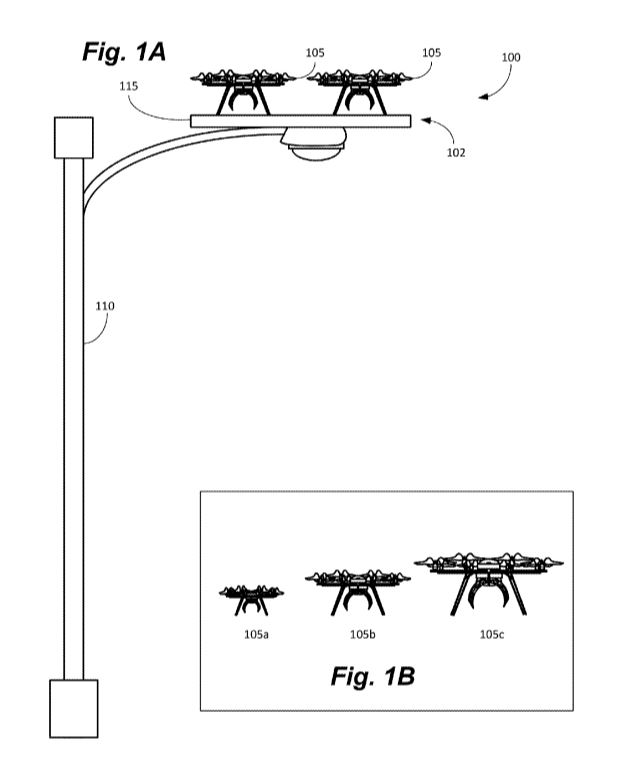Amazon plans to recharge Prime Air drones on street lights


Image: USPTO
Amazon has teased us with its plans to use drones to deliver packages to customers in 30 minutes or less with its future Prime Air program. While consumers and industry stakeholders eagerly await regulatory support for this type of service, several companies are pushing forward with sorting out the practical details as much as possible in the meantime.
Amazon has just been granted a new US patent that describes drone docking stations that could eventually provide the infrastructure that will be needed to make deliveries practical in the real world.
The docking stations can either be new standalone structures specifically built for drones or incorporated into existing structures such as buildings, power poles, street lights, or cell towers (in some cities street lights are already doubling as cell towers). The stations could provide several different services for unmanned aerial vehicles (UAVs). The patent by Amazon Technologies, Inc., explains:
The docking stations can include package handling facilities and can act as a final destination or as a delivery hub. The docking stations can extend the range of UAVs by providing recharging/refueling stations for the UAVs. The docking stations can also include navigational aid to guide the UAVs to the docking stations and to provide routing information from the central control.
Amazon's Greatest Innovations
While the idea of a bunch of drones perching on lamp posts seems a bit over the top, the concept does help solve the problem of limited battery life. Amazon's marketing for Prime Air paints a picture of a utopian future where UAVs fly through sprawling suburbs to deliver anything from sneakers to groceries.
In the recent patent, however, Amazon admits what we already suspected: "The range provided by current UAV technology, however, makes deliveries over a wide area -- e.g., throughout a city, or even a portion of a city -- difficult."
Of course these plans are completely irrelevant in the US until the Federal Aviation Administration (FAA) loosens restrictions on commercial drone activity. The FAA released long-awaited commercial UAV guidelines in June, but the regulations include tight restrictions, such as requiring operators to keep drones within sight, that prevent Amazon and any other company from launching drone delivery services anytime soon.